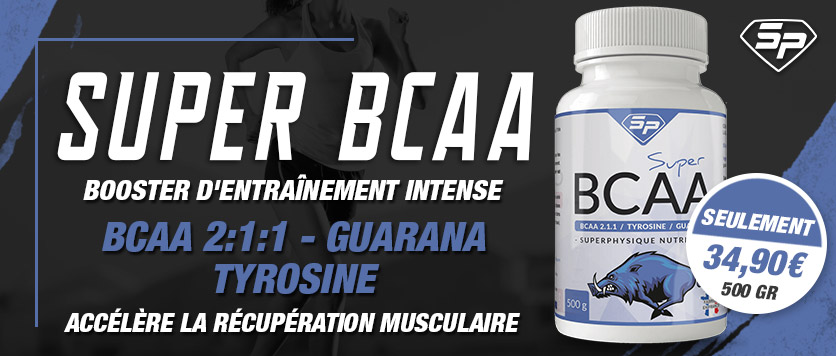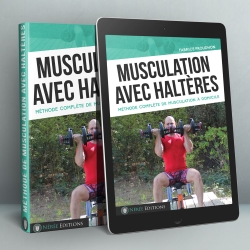N-Acetyl-Glutamine (NAG)
NOTE: This article is on L-Glutamine, N-Acetyl-L-Glutamine is the acetylated version of L-Glutamine and technically known as an acetylated Glutamine analogue. NAG is more stable in water and metabolically efficient at delivering glutamine's biological effects over conventional Glutamine, or Glutamine Peptides.
There is no doubt that the physiological importance of the amino acid L-glutamine for promoting and maintaining cell function is accepted across the scientific community. It is now well known that a large number of tissues and cells in the body utilize glutamine at high rates, and that glutamine utilization is essential for their function. Because of the vast quantity of literature on glutamine in this issue of Ironmagazine the focus of the review must be selective, with the most influential topics reflecting you guys the readers of Ironmagazine. I believe these areas to be protein synthesis, cell swelling, and immune function.
Glutamine Origin & Function
The immediate product of glutamine metabolism in most cells is glutamate, (see fig.1) which is produced by the action of glutaminase. Glutamine is the most abundant extra-cellular amino acid and its breakdown product glutamate is the most abundant in the intra-cellular environment [1]. Glutamine is utilized by many tissues including, kidneys, gut, and some cells of the immune system. To maintain these extreme demands glutamine must be synthesised by several organs, including skeletal muscle, kidneys, liver, lungs, and heart. The most important site of glutamine metabolism is skeletal muscle. In skeletal muscle glutamine can be synthesised by a variety of biochemical reactions including protein degradation or from the combination of 2-oxoglutarate and branched chain amino acids (leucine, isolucine, valine); it can just as well be taken from the plasma in its whole form or via the deamination of proteins [2].
Don’t stress it: Immune function
It is now widely accepted that glutamine is utilized at high rates by isolated cells of the immune system such as lymphocytes, macrophages and neutraphils [3,4]. These cells can be placed under considerable pressure during situations resulting in elevated stress with the consequence being immune-suppression. Exercise is one form of physiological stress that could lead to immune system suppression, but is there a link between glutamine stores and its optimum functioning?
The effect of acute exercise on plasma glutamine concentration appears to be dependent to a large extent to both the intensity and duration of the exercise bout. After prolonged (2>hrs duration) exhaustitive exercise there is generally a small but significant decrease in circulating plasma glutamine concentrations [5,6,7]. Evidence suggests that the suppression of glutamine may remain for up to 4 hours upon the cessation of exercise [8]. Although in some situations this has been shown to be the case in many others it has not. Following ultra-triathlon, plasma glutamine was shown not to change [9], single bouts of high intensity exercise have been shown to both increase and shown no change [10,11]. So why all the confusion between studies? In essence this reflects the fact that measurements are mainly based on plasma analysis rather than assessment of changes within the intracellular environment i.e. “muscle glutamine stores”. In situations where muscle glutamine has been measured, a decrease is seen in many of the above exercise situations. What is still not well understood is why plasma glutamine levels can decrease while muscle glutamine is being released into the plasma (this maybe due to uptake of glutamine by the kidneys to maintain pH). The latest data suggests that in people with a long history of exercising and atypical over-trainers there is a change in the transport system leading to a decrease in the rate of glutamine release from skeletal muscle.
The chronicity of the physiological stress seems to be directly related to the severity of the immune suppression we can experience. This has been shown to be never truer than in clinical environment, and the severe trauma of sepsis and burns [12]. The largest decline reported in plasma glutamine is in severe burns victims where plasma concentration can fall massively from 490 - 200mM [11]. We know of many studies that have shown a direct relationship between glutamine loss and this form of excessive trauma and the need for supplemental glutamine. However to place this in context acute exercise only leads an average decline of only 100mM; much less of a fall and a decline that can be quickly replenished in a health subject. As we already know glutamine feeds a variety immune functioning cells, its is therefore important to understand if the exercise related decrease in plasma glutamine can have an immuno- suppressive effect, and if supplementation could ameliorate these negative consequences.
Lymphocyte Activated Killer cell activity (LAK) an immune cell type that destroy invading organisms, have been shown to be directly linked to glutamine concentrations. Juretic et al [13] discovered that depression of glutamine concentrations negatively affected the LAK activity. In an applied situation measurements of declining serum glutamine taken following a triathlon resulted in a parallel decline in LAK [14]. Many other immune responses have been proposed to be effected including cytokines and macrophages, however although there is a selection of literature linking glutamine with the immune system it is still unknown weather there is a causal relationship between decreased glutamine stores and immuno-suppression or vice versa. One possible way to elucidate this is through monitoring the effects of L-glutamine supplementation of which we will examine later (If you cannot wait skip forward a few paragraphs).
Cell Swelling: Turning up the Anabolic signal
Cellular swelling is often a symptom of a change in the osmotic gradient within the cell. What this means is that if you increase the concentration of a compound outside of the cell membrane above that found inside of the cell, there will be a movement of this compound until extracellular and intracellular contents are equal [15]. The movement of these compounds / solutes result in the uptake of water as they are transported inside the cell and hence a transient expansion of cellular volume (See figure.2).
Recent evidence suggests that the state of cellular hydration (cell volume) is an import factor in the control of many important cellular functions. These include modulation of hormones, oxidative stress, and gene expression to name but a few. Several compounds have been shown to have a significant effect on cellular volume. The effect these amino acids have on glycogen synthesis and inhibition of proteolysis can be mimicked by bringing about similar changes in cell volume [16,17,18]. This indicates that many of the effects these amino acids exert can be accounted primarily due to their cell volumizing properties.
Cell swelling also inhibits protein breakdown but conversely cell shrinkage stimulates breakdown [19]. Glutamine has been shown to be a potent player for enhancing cellular swelling [20] (see figure.3). The mechanisms proposed for improved protein turnover as mediated via glutamine induced cell swelling are two-fold. Firstly it may influence the function of cyclic AMP, a chemical messenger associated with many cellular functions including the inhibition of protein synthesis as such, cell swelling may prevent or enhance protein synthesis. Secondly it may have a direct effect on cellular stability [21] however I doubt this hypothesis as recent studies have shown glutamine to have little effect on myofibrillar damage over the short term [22], longer term studies are still needed. Other factors such as nitrogen balance will be affected through glutamine supplementation and this in its own right will have a significant impact on protein synthetic rates.
Immune Function
Several research studies have investigated the suggestion that exogenous provision of glutamine supplementation may be beneficial by preventing the impairment of immune function following endurance exercise. Castell [23] was one of if not the primary study demonstrating the influence of glutamine supplementation following exercise. A 5g dose was given immediately post race and 2hrs proceeding the event. Plasma glutamine was still depressed by 20% in both groups although based on questionnaires 80% of athletes reported no incidence of infection up to 7 days post event, were only 48% of the placebo group remained free of infection. However in a follow up study no significant difference in plasma glutamine was demonstrated between swimmers who did or did not develop upper respiratory tract infection (URTI) following and increase in the intensity of their training schedule [5].
It has been hypothesised that the dose of glutamine was not enough to ameliorate the decline in plasma glutamine concentrations, so a new dose protocol was needed. A dose routine using 100mg/kg BW was used 30min pre, immediately post, and 30mins post exercise [24]. The exercise consisted cycling for 60,45, and 30 mins with 2 hr recovery periods. The glutamine supplemented group maintained plasma concentrations above pre supplement levels, whilst the placebo group decrease by about 20% (as in the previous study above). Although the supplemented group maintained plasma glutamine concentration no differences were shown between the groups lymphocytes, leucocytes, or LAK activities, which are all known indicators of immune system function. This data demonstrates that although plasma glutamine concentrations were attenuated the influence of supplementation did not diminish post exercise immuno-suppresion characterised by decreased lymphocyte concentration and LAK activity.
There are two other major factors I would like to draw you attention two as regards the hypothesis of L-glutamine supplementation and immuno-suppression. Firstly it has been shown that in-vitro when we decrease the glutamine availability to lymphocytes to the lowest possible levels measured post exercise (300mM) their function was just as efficient as at concentrations similar to that demonstrated at rest (600mM). Secondly data from researchers at the Copenhagen Muscle Research Centre (CMRC) have shown that following an acute bout of cycling plasma glutamine levels decrease as expected, however the concentration in many of the immune cells was maintained and possibly increased. Therefore using the current dosing regimes, oral glutamine ingestion does not positively influence immune functioning in exercising populations.
Cell Swelling & protein sparing
To date there is very little direct data on L-glutamine feeding and protein rates in humans, what you will see quoted is a myriad of papers on malnutrition, AIDS, and people with gastrointestinal disorders. These hardly represent the exercising population and I won’t insult your intelligence by quoting what they have found. I could only really find one real study that has looked at the implication of glutamine supplementation and exercise performance for the resistance trained athlete. Antonio et al [25] investigated the possibility of high dose glutamine supplementation on weightlifting performance (one hour after ingestion) as defined by 2 sets of leg press (200% Bwt) and 2 sets of bench press (100% Bwt). No significant differences were found in the average number of reps performed between all groups. There is no reason why glutamine use would affect this form of performance, other than the far-reaching possibility of controlling/enhancing intracellular pH (ye glutamine may do this also). In this regard there are much more efficient extracellular and intracellular buffers. L-glutamine may also affect proteolysis by inhibiting the catabolic effects of cortisol. Whilst in clinical situations this may have a significant place in the total impact of a sound nutritional program in the experienced athlete I am not as convinced. Many studies have shown cortisol control has no direct impact on exercise performance [26] and possibly zero impact even if we could depress our cortisol levels, as experienced lifters produce less cortisol then their associated sedentary counterparts [27].







